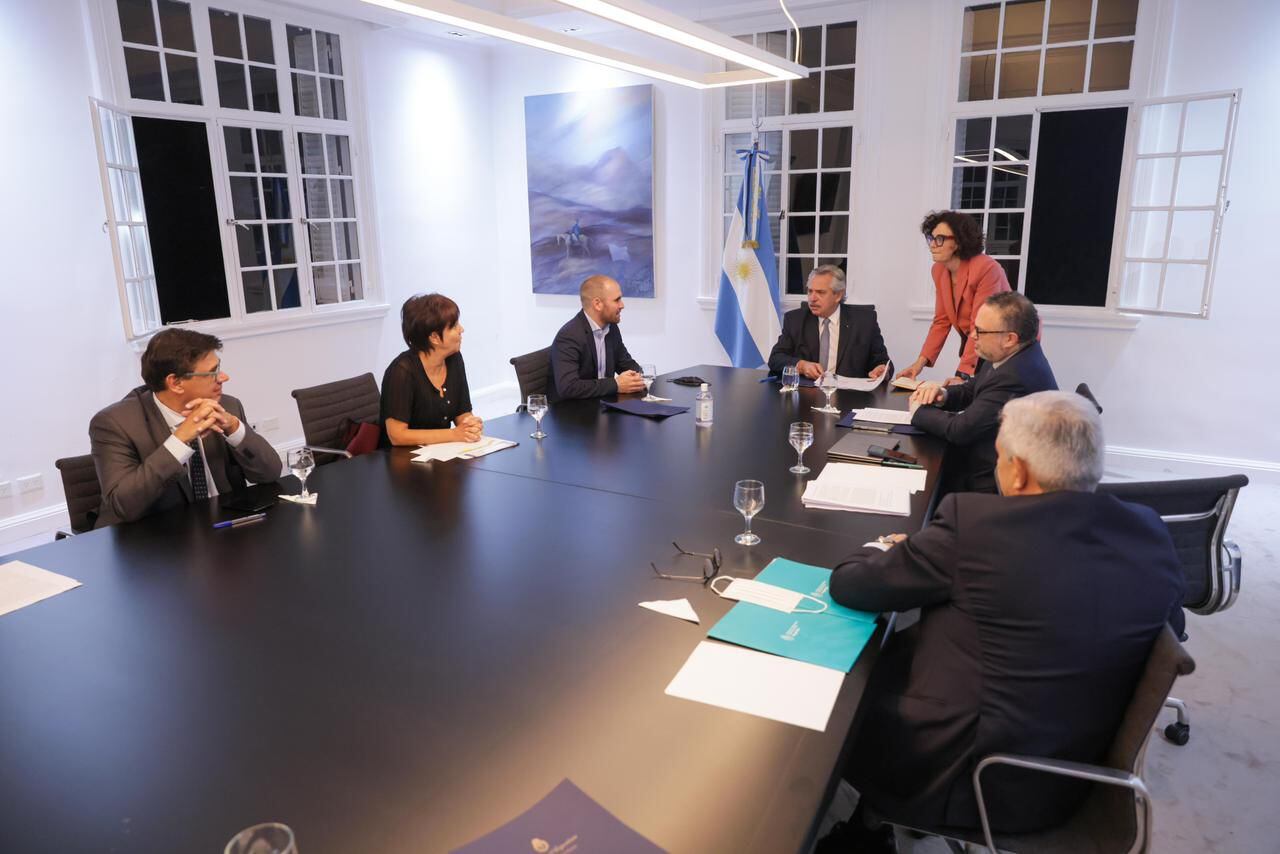
In a nearly sixteen-minute recorded speech, Alberto Fernández made his first tactical move to defeat inflation in a war that will be uneven because of Argentina's economic conditions and the global increase in food and fuel caused by Russia's illegal offensive on Ukraine.
The President read a declaration of war on inflation that relied on the convening of a dialogue table, the repeated and ineffective measure of price control, the threat to the implementation of the Supply Law, the possible credit benefits that the agreement with the IMF may bring and the creation of a trust fund to contain the price of flour.
The battery of future economic and financial measures - which will be needed over the days - do not have enough firepower to defuse inflation in the short term. Wheat increases its price due to the stock policy of Europe and China, and fuel - gas oil and gas - became a scarce commodity with increasing value that will jeopardize the Central Bank's reserves.
Alberto Fernández called for the fight against inflation, but did not specify that this battle will be long and with uncertain results. It was a miscommunication: the head of state had to clarify that the so-called “food inflation” will continue on an upward course and that it will be able to touch double digits during March.
The Government is weak because of the final internal staged by the President and Cristina Fernández de Kirchner, and an announcement without concrete measures accentuates political weakness and reduces another share of credibility.

Before his speech launching the war against inflation, Alberto Fernández held a meeting with the economic cabinet. They are officials loyal to the President and critics of the local and geopolitical gaze held by CFK, Máximo Kirchner, La Campora and the Patria Institute.
It was the first time that Martín Guzmán -Minister of Economy-, Matías Kulfas -Minister of Production-, Julián Domínguez -Minister of Agriculture and Livestock-, Claudio Moroni -Minister of Labour-, Cecilia Todesca - Secretary of International Economic Relations - and Mercedes Marcó del Pont -head of the AFIP-, presented their ideas and initiatives assuming that there would be no technical and ideological control of Cristina and Máximo Kirchner.
Alberto Fernández also did not use his WhatsApp or Telegram account to tell the vice president what he would announce to curb inflation caused by domestic circumstances and global events.
The presidential speech exhibits a contradictory internal logic. It calls for dialogue with the most representative sectors of Argentina to establish a common agenda and then threatens to apply State controls. A local version of the Carrots and Stick concept.
“That is why I will convene from this Monday the representatives of the productive sectors, entrepreneurs, formal workers and the popular economy, representatives of the countryside and commerce, small and medium-sized enterprises and civil society to an agreement table that will allow us to design a tomorrow in the fight against inflation”, announced the president in Olivos.
He then concluded: “We are not going to stop controlling and controlling prices, applying the supply law if necessary and using all the instruments available to the state to meet the objective of controlling prices.”
Alberto Fernández did not quote Cristina once, nor did he quote the Frente de Todos. But she recalled with Florentine diplomacy the Vice President's political attitude when she left the Senate before the vote on the law that supported the agreement with the IMF.
“It is also a special day because we came to this law with the consensus of legislators from different political forces who managed to find the points of agreement to respond responsibly to a situation that required it. The agreement won an overwhelming majority in both houses of Congress,” said the President.
That paragraph was written -direct- by Alberto Fernández.
Últimas Noticias
Debanhi Escobar: they secured the motel where she was found lifeless in a cistern
Members of the Specialized Prosecutor's Office in Nuevo León secured the Nueva Castilla Motel as part of the investigations into the case

The oldest person in the world died at the age of 119
Kane Tanaka lived in Japan. She was born six months earlier than George Orwell, the same year that the Wright brothers first flew, and Marie Curie became the first woman to win a Nobel Prize

Macabre find in CDMX: they left a body bagged and tied in a taxi
The body was left in the back seats of the car. It was covered with black bags and tied with industrial tape
The eagles of America will face Manchester City in a duel of legends. Here are the details
The top Mexican football champion will play a match with Pep Guardiola's squad in the Lone Star Cup

Why is it good to bring dogs out to know the world when they are puppies
A so-called protection against the spread of diseases threatens the integral development of dogs




